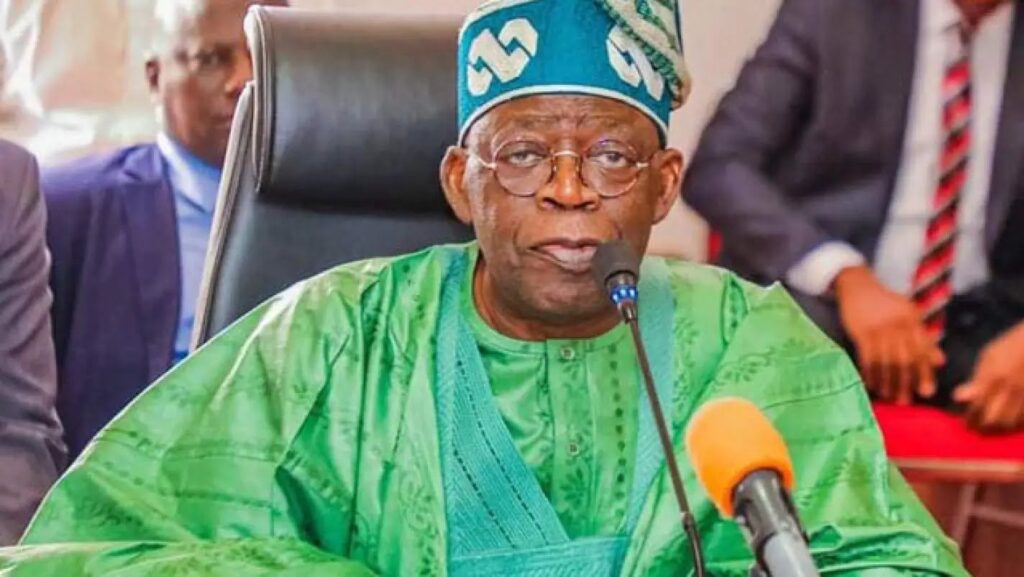President Bola Tinubu has acknowledged that the economic hardship currently plaguing Nigeria—including hunger, unemployment, insecurity, and the rising cost of living—is both real and critical, assuring citizens of his administration’s commitment to finding lasting solutions.
Speaking on Thursday during the national May Day celebration at Eagle Square, Abuja, Tinubu, represented by the Minister of Labour and Employment, Muhammad Maigari Dingyadi, said the challenges Nigerians face are dire and must be tackled head-on.
“I am aware of the peculiarities of the economic hardship Nigerians face—rising living costs, hunger, insecurity, unemployment, and the loss of livelihoods,” Tinubu stated.
“These challenges are real and demand definitive solutions, which I am poised to address as your President.”
The President emphasized his government’s commitment to policies aimed at job creation, poverty alleviation, economic growth, and support for vulnerable citizens.
“This administration is not only committed but intentional in implementing policies promoting job creation, poverty alleviation, economic growth, and support for the vulnerable,” he said.
He also addressed the need to reclaim and protect civic space in Nigeria, calling it vital to democratic development.
“To reclaim this space, we must prioritize transparency, inclusivity, equity, and dialogue. Workers must have the right to organize, advocate, and participate in decision-making processes,” he said.
In line with international labour standards, Tinubu pledged to strengthen labour protections, improve job security, and address underemployment, which he described as a “significant concern.”
Tinubu added that Nigeria is set to join the Global Coalition for Social Justice led by the International Labour Organization, to align the nation’s labour practices with global standards.
He said the coalition’s six thematic areas—employment creation, social protection, sustainable enterprises, human dignity, addressing inequality, and skills investment—align with his administration’s Renewed Hope Agenda.
Earlier, Dingyadi, represented by Minister of State for Labour and Employment, Nkeiruka Onyejeocha, said the celebration was also a time of reflection and recommitment.
“Inflation, unemployment, and inequality are not just statistics; they are lived realities,” she said.
“While we acknowledge these challenges, progress is being made through dialogue and an open, protected civic space.”
Despite the assurances, Nigeria’s organised labour used the occasion to raise the alarm over the worsening socio-economic conditions and presented a 20-point demand to the Federal Government.
In a joint address, Presidents of the Nigeria Labour Congress (NLC), Joe Ajaero, and Trade Union Congress (TUC), Festus Osifo, decried what they described as “genocidal killings and bloodletting” across the country, economic collapse, and the erosion of democratic values.
The Labour Centres demanded the reversal of what they termed the unconstitutional suspension of the Rivers State government and called for an immediate review of tax policies, reduction of telecommunications tariffs, a new national minimum wage, and a reversal of the power sector privatisation.
“Our nation is beset by daunting challenges that threaten not only our democracy but the very fabric of our collective existence,” the unions said.
“The worsening ethnic tensions, alarming insecurity, unchecked impunity in governance, and blatant disregard for constitutional and democratic principles have cast a dark shadow over our nation.”
They also condemned ongoing killings in states including Plateau, Zamfara, Benue, and Kebbi, describing the situation as a failure of the government to fulfill its primary responsibility of securing lives and property.
“As we speak, we hear of the emergence of a new terrorist group named Mahmuda sect in the Middle Belt. This calls for serious attention,” the NLC and TUC warned.
In a strongly worded economic critique, the labour leaders said government policies had failed to reverse inflation, unemployment, and a weakened GDP.
They described statistics provided by the government as detached from the reality faced by ordinary Nigerians.
“The Nigerian economy is facing severe structural challenges. Government’s policies have failed to address rising inflation, unemployment, and exchange rate instability,” Ajaero and Osifo said.
Citing data, they noted that inflation had surged to 33.69 percent, food inflation had reached 40.53 percent, and that the rebased unemployment rate at 5.3 percent belied the reality of nearly 70 percent underemployment.
“Most of our families can no longer afford basic meals as a month’s salary cannot buy a bag of 50kg rice or beans,” they lamented. “Nigeria is still ranked 161 out of 193 nations sampled in the Human Development Index (HDI).”
They also criticised the exodus of multinational companies like GlaxoSmithKline and Procter & Gamble from Nigeria due to the harsh operating environment, and called for urgent interventions to support the real sector.
“No economy can progress without a strong domestic manufacturing base. How can you talk of job creation when the very entities that would provide the jobs are closing shops?” they asked.
The unions advocated for deliberate policies to increase workers’ purchasing power, urging government to stop relying on statistical “subterfuge” such as rebasing inflation and unemployment rates.
“Deliberate steps must be taken to put more money in the hands of workers—who shop locally to stimulate the economy and reduce inventory, creating deeper multipliers within the economy,” the joint address stated.
They also proposed an upward review of retirement age, restoration of gratuity payments, automatic adjustment of pensions to reflect inflation, and the end to dehumanising verification exercises.
On governance, the unions warned against undermining democratic institutions and stressed the need for leadership rooted in service and justice.
“The choices we make today will define our nation for generations to come,” they said. “Doing nothing should not be an option.”
Do you want to share a story with us? Do you want to advertise with us? Do you need publicity for a product, service, or event? Contact us on WhatsApp +2348183319097 Email: platformtimes@gmail.com
We are committed to impactful investigative journalism for human interest and social justice. Your donation will help us tell more stories. Kindly donate any amount HERE




